Pályázatunk az MTA Tantárgy-pedagógiai Kutatási Programjának keretében 2016 és 2021 között működő két különböző matematikadidaktikai tárgyú projekt, az MTA-ELTE Korszerű Komplex Matematikaoktatás és az MTA-Rényi Felfedeztető Matematikatanítás projektek munkájának közösen tervezett folytatását mutatja be. Az új négyéves projekt célja a hazánkban jelenleg csak szűk körben gyakorolt felfedeztető matematikaoktatás széleskörű implementációjának segítése, a létező gyakorlat fejlesztése, adaptálása a modern kor kihívásaihoz, a hazai felfedeztető matematikaoktatási hagyományok jobb megismertetése a nemzetközi matematikadidaktikai közösséggel, illetve a korszerű nemzetközi kutatási trendek beépítése a Magyarországon folyó kutatásokba és fejlesztésekbe.
Pályázatunk résztvevői az ország különböző régióiban dolgozó tapasztalt és fiatal kutatók, PhD-hallgatók, tanítók, tanárok, akik a matematikaoktatás különböző szintjeivel foglalkoznak az általános iskolától a tanárképzésig.
Kitüntetett célunk, hogy a projekt keretei között lehetőséget biztosítsunk korábban izoláltan dolgozó kutatók közötti együttműködésekre, a nemzetközi kutatások vérkeringésébe való bekapcsolódásra, minél több fiatal kutató, PhD-hallgató bevonására. Ezáltal projektünk fontos előrelépést jelentene a matematikadidaktikai kutatások hazai intézményesülése felé.
A kutatócsoport vezetője Vancsó Ödön, habilitált egyetemi docens, az ELTE TTK Matematikai Intézet Matematikatanítási és Módszertani Központ és az MTA-ELTE Korszerű Komplex Matematikaoktatási Kutatócsoport vezetője
A kutatócsoport tudományos koordinátora Gosztonyi Katalin, a projektmenedzsment szervezési és technikai részéért Csapodi Csaba felel, ők mindketten az ELTE TTK Matematikatanítási és Módszertani Központ oktatói.
A kutatócsoport több, egymással együttműködő és összefüggő, mégis önálló kutatási témával foglalkozó munkacsoportból áll (ld. lejjebb).
A munkacsoportok vezetői:
- Vancsó Ödön (központvezető, egyetemi docens, ELTE TTK, Rényi Intézet)
- Csapodi Csaba (Rényi Intézet, ELTE TTK)
- Gosztonyi Katalin (adjunktus, ELTE TTK)
- Juhász Péter (az MTA-Rényi Felfedeztető Matematikatanítás Kutatócsoport vezetője, a Rényi Alfréd Matematikai Kutatóintézet kutatója, a Szent István Gimnázium matematikatanára)
- Kónya Eszter (egyetemi docens, Debreceni Egyetem)
- Kosztolányi József (egyetemi docens, Szegedi Tudományegyetem)
- Kovács Zoltán (tanszékvezető, egyetemi docens, Eszterházy Károly Egyetem)
A kutatócsoport tagjainak névsora
A fent említett személyeken túl a kutatócsoport tagja további 12 kutató magyar egyetemekről (ők főleg matematika szakmódszertannal foglalkozó szakemberek, de van köztük matematikus és kognitív pszichológus is), valamint 4 külföldi (köztük két határontúli magyar) kutató.
A pályázat céljaival összhangban nagy hangsúlyt helyezünk a fiatal kutatók bevonására a kutatómunkába. Összesen 12 olyan nevesített résztvevője van a kutatócsoportnak, aki jelenleg a PhD tanulmányait végzi, munkája kapcsolódik valamely munkacsoport kutatásához és 9-en közülük valamely közoktatási intézményben is dolgoznak matematikatanárként.
A kutatócsoport közoktatáshoz való kapcsolódását erősíti (a fent említett, kutató és tanári szerepben egyaránt tevékenykedő személyeken kívül) 2 alsó tagozatos tanító és 12 felső tagozatos illetve középiskolai tanár, akik a pedagógus életpálya különböző szakaszán állnak.
A külföldi kapcsolatok fenntartását, fejlesztését, újak kialakítását is fontosnak tartjuk. A kutatásban együttműködő partnerként vesz részt Simon Modeste és Viviane Durand-Guerrier (Université de Montpellier, Franciaország), Johann Sjuts (Universität Osnabrück, Németország), Marianna Bosch (IQS Universitat Ramon Llull, Barcelona, Spanyolország), Luc Trouche (ENS Lyon, Franciaország), Alain Bernard (Université Paris-Est Créteil, Franciaország), Danny Beckers (Freudenthal Institut, Hollandia), Dirk de Bock (Catholic University Leuven, Belgium) Fenyvesi Kristóf (Jyväskyläi Egyetem, Finnország, az Élményműhely alapítója és vezetője), Földesi Katalin (Svédország), Vargyas Emese (Universität Leipzig, Németország), Szűcs Kinga (Universität Erfurt, Németország).
A határontúli magyar közösség matematikatanítási intézményeit is bevonjuk a kutatásba: a kutatócsoport tagjai között szereplő erdélyi és vajdasági kollégák mellett együttműködünk felvidéki és kárpátaljai kutatókkal és tanárokkal is.
Munkacsoportok
A projekt megvalósítása altémákra bontva több párhuzamos munkacsoportban zajlik, amelyek három nagyobb blokkba sorolhatók.
I. Felfedeztető matematikaoktatás - módszertani kérdések
A felfedeztető matematikaoktatás módszertanával kapcsolatos matematikadidaktikai kérdésekkel négy különböző munkacsoport foglalkozik, az általános- és középiskolai matematikaoktatás különböző szintjeit és témáit lefedve. Az első két csoport – elsősorban Varga Tamás matematikaoktatási koncepciójából kiindulva – a tanári munka támogatására fókuszál felfedeztető jellegű tanórák, illetve hosszabb tanítási folyamatok tervezését és megvalósítását illetően. A harmadik csoport Pósa Lajos módszeréből kiindulva azt vizsgálja, hogyan, milyen feltételekkel lehet tanulók minél szélesebb körét megszólítani ezzel az eredetileg tehetséggondozás céljára kidolgozott módszerrel, és milyen hatással van ez a matematikai eredményeikre, illetve különösen a matematikával kapcsolatos attitűdjeikre. A negyedik csoport az eszközhasználat szerepére fókuszál a felfedeztető matematikaoktatásban, különös tekintettel a matematikatanításban használt eszközkészlet mai igényeknek megfelelő továbbfejlesztésére.
I.1. Problémaalapú matematikaoktatás – tanórák tervezése és megvalósítása
I.2. Hosszabb felfedeztető tanítási folyamatok tervezése problémasorozatok formájában
I.3. A Pósa-módszer elemzése és implementálása
I.4. Eszközhasználat szerepe a felfedeztető matematikaoktatásban
II. Egyes matematikai témák felfedeztető tanítása
Két munkacsoport foglalkozik egyes matematikai témák tanításával kapcsolatos speciális kérdésekkel, a témák tanításával kapcsolatos magyar hagyományokat a korszerű nemzetközi trendekkel integrálva.
II.1. Valószínűségszámítás, statisztika
II.2. Diszkrét matematika
III. Transzverzális munkacsoportok: a matematikadidaktikai kutatások támogatása
Végül két munkacsoport foglalkozik olyan transzverzális kérdésekkel, amelyek a többi munkacsoport munkáját támogatják. Az egyik ilyen csoport a magyar matematikadidaktika közelmúltjának történetét és nemzetközi kapcsolatait térképezi fel, és hozzájárul a ma is releváns források összegyűjtéséhez és jobb hozzáférhetővé tételéhez. A másik csoport pedig egy angol-magyar matematika-szakmódszertani szótár fejlesztésével segíti a magyar kutatások bekapcsolását a nemzetközi vérkeringésbe (különös tekintettel a fiatal kutatók publikációs tevékenységének támogatására).
III.1. A magyar matematikadidaktika története: közelmúlt, nemzetközi kapcsolódások
III.2. Magyar-angol matematika-szakmódszertani fogalomtár
Megjelent publikációk
- Krajcsi, Attila; Csapodi, Csaba; Stettner, Eleonóra: Algotaurus: an educational computer programming game for beginners INTERACTIVE LEARNING ENVIRONMENTS 29 : 4 pp. 634-647., 14 p. (2021) DOI: 10.1080/10494820.2019.1593862 (D1)
- Csapodi, Csaba & Hoffmann, Miklós: Changes in Mathematics Core Curriculum and Matriculation Exam in the Light of the COVID-19-Shock, EDUCATION SCIENCES (Q1) 11: 10 p. 610 (2021) DOI: 10.3390/educsci11100610
- Kiss, M. & Kónya, E.: Do students analyze and evaluate the result of their problem solving activity? In: Bożena, Maj-Tatsis; Konstantinos, Tatsis (Eds.) Critical thinking in mathematics: perspectives and challenges, Wydawnictwo Uniwersytetu Rzeszowskiego pp. 143-152. (2021) Könyvfejezet
https://cme.ur.edu.pl/wp-content/uploads/2022/01/CME'21%20critical%20thinking.pdf - Kovács, Z. & Kónya, E.: Antinomies of problem posing. In: Bożena, Maj-Tatsis; Konstantinos, Tatsis (Eds.) Critical thinking in mathematics: perspectives and challenges, Wydawnictwo Uniwersytetu Rzeszowskiego pp. 101-110. 2022 Könyvfejezet https://cme.ur.edu.pl/wp-content/uploads/2022/01/CME'21%20critical%20thinking.pdf
- Báró, E.: Teaching strategies for developing critical thinking skills. In: Bożena, Maj-Tatsis; Konstantinos, Tatsis (Eds.) Critical thinking in mathematics: perspectives and challenges, Wydawnictwo Uniwersytetu Rzeszowskiego pp. 17-25. 2022 Könyvfejezet https://cme.ur.edu.pl/wp-content/uploads/2022/01/CME'21%20critical%20thinking.pdf
- Fitriana, L. D.: Problem solving: how do students with different personality types show their critical thinking when solving a mathematical problem? In: Bożena, Maj-Tatsis; Konstantinos, Tatsis (Eds.) Critical thinking in mathematics: perspectives and challenges, Wydawnictwo Uniwersytetu Rzeszowskiego pp. 153-163. 2022 Könyvfejezet https://cme.ur.edu.pl/wp-content/uploads/2022/01/CME'21%20critical%20thinking.pdf
- Gosztonyi, K.: Series of problems in Clairaut’s Element of Geometry : Interaction between historical analyis and mathematics education research. In: ZDM MATHEMATICS EDUCATION (D1) 2022
- Fitriana, L. D., Ekawati, R., & Kovacs, Z. (2022). Perspectives on the problem-posing activity by prospective teachers: A cross-national study. JOURNAL ON MATHEMATICS EDUCATION (Q2), 13(1), 149–172. https://doi.org/10.22342/jme.v13i1.pp149-172
- Urbanski, M., Daunt, Z., Saluja, T., Barbarics, M. & Juhász, P.: Connections between discovery learning through Pósa Method and the secondary school leaving examination in three Hungarian mathematics classrooms. in: TEACHING MATHEMATICS AND COMPUTER SCIENCE Vol. 20 (1) 2022 pp. 67-85.
- Bóra, E. & Gosztonyi, K.: The role of algorithmics in a Hungarian mathematics education program for gifted students. In: Proceedings of the Twelfth Congress of the European Society for Mathematics Education 2022
- Vancsó, Ö., Fejes-Tóth P. & Borovcnik, M.: Conditional Probability, Bayes and classical statistics – Evaluation of the Planned Secondary-School reform in Hungary. Proceedings of ICOTS 11 Rosario International Association for Statistical Education (IASE), Paper 11.T6G2. 6 p. (2022)
- Fejes-Tóth, P., Vancsó, Ö. & Borovcnik, M.: Combinatorial Thinking as Key for Introducing Hypothesis testing – Evaluation of the Planned Secondary-School Reform in Hungary. In: Bridging Gap: Empowering and Educating Today’s Learners in Statistics. Proceedings of ICOTS 11 Rosario International Association for Statistical Education (IASE), Paper 11.T6F1. 6 p. (2022)
- Lócska, O. & Kovács, Z.: The “Sense-Making-Algebra” project for Hungarian seventh graders. In: Proceedings of the Twelfth Congress of the European Society for Mathematics Education 2022 https://hal.science/hal-03745145v1
- Kovács-Koszó, E., Kónya, E. & Kovács, Z.: Planning and implementation: the impact of a professional development program on teachers' and learners' oral manifestations. In: Proceedings of Twelfth Congress of the European Society for Research in Mathematics Education (CERME12) 2022, https://hal.science/hal-03745395v1
- Kiss, M. & Kónya, E.: Written test with oral explanation during the pandemic. In: Proceedings of the Twelfth Congress of the European Society for Research in Mathematics Education (CERME12) 2022, https://hal.science/hal-03753435v1
- Báró, E.: Positive changes in affective variables: Two-round action research in Hungary and Romania. In: Proceedings of the Twelfth Congress of the European Society for Research in Mathematics Education (CERME12) 2022, https://hal.science/hal-03745582v1
- Fitriana, L. D.: Exploring Indonesian prospective teachers' teaching belief and teaching practice. In: Proceedings of the Twelfth Congress of the European Society for Research in Mathematics Education (CERME12) 2022, https://hal.science/hal-03748730v1
- Fitriana, L. D.: First experience with problem-posing: What can be done with a multiplication table? In: B. Maj-Tatsis & K. Tatsis (Eds.): Critical thinking practices in mathematics education and beyond (pp. 137–146). Wydawnictwo Uniwersytetu Rzeszowskiego. 2022 Könyvfejezet https://cme.ur.edu.pl/wp-content/uploads/2023/01/critical-thinking-2022-final.pdf 2022 Könyvfejezet
- Báró, E.: Observing critical thinking during online pair work. In: In B. Maj-Tatsis & K. Tatsis (Eds.), Critical thinking practices in mathematics education and beyond (pp. 128–136). Wydawnictwo Uniwersytetu Rzeszowskiego. 2022 Könyvfejezethttps://cme.ur.edu.pl/wp-content/uploads/2023/01/critical-thinking-2022-final.pdf
- Kónya, E. & Kovács, Z.: Management of problem solving in classroom context. Center for Educational Policy Studies Journal, 12(1), 81–101. 2022 (Q3) https://doi.org/https://doi.org/10.26529/cepsj.895
- Téglási, I.: Motivation and Development – Using Poly-Universe Game in Teaching Mathematics. Athens Journal of Sciences, 9, 1-1. https://www.athensjournals.gr/sciences/2022-9-3-2-Teglasi.pdf 2022.
- Kovács, Z.: The tradition of problem-posing in Hungarian mathematics teaching. TEACHING MATHEMATICS AND COMPUTER SCIENCE, 20 (2) pp. 233-254. 2022. https://ojs.lib.unideb.hu/tmcs/article/view/12084
- Ambrus, G., Csapodi, Cs., Vancsó, Ö. & Varga, E.: Mathematikunterricht in Ungarn – Traditionen und Erneuerungen: Stellung, Ziele, Inhalt und Ergebnisse des Mathematikunterrichts der oberen Klassen der ungarischen Schulen. In: Rolfes, T., Rach, S., Ufer, S., Heinze, A. (Eds.): Das Fach Mathematik in der gymnasialen Oberstufe. Münster: Wachsmann Verlag GmbH. pp. 177-195 p. 19 (2022) Könyvfejezet
- Bóra, E. & Juhász, P.: Ausgehend vom Extrem – ein besonderer Problemfaden der Pósa-Methode. In: Mathematische Zeitschriften und Wettbewerbe für Kinder und Jugendliche. Band 4: Förderung für Talentierte und Interessierte über Grenzen hinweg 2022 Wiesbaden, Springer Könyvfejezet https://doi.org/10.37626/GA9783959872287.0.16
- Kondé, Z., Kovács, Z., & Kónya, E. (2023). Modeling teachers’ reactions to unexpectedness. LEARNING AND INSTRUCTIONS(D1), 101784. https://doi.org/10.1016/J.LEARNINSTRUC.2023.101784
- Gosztonyi, K. & Varga, E.: Teacher’s practices and resources in the Hungarian „Guided Discovery” approach to teaching mathematics: presenting and representing „series of problems”. In: ZDM MATHEMATICS EDUCATION (D1) 2023
- Kovács, Z., Báró, E., Lócska, O., & Kónya, E. (2023). Incorporating Problem-Posing into Sixth-Grade Mathematics Classes. EDUCATION SCIENCES (Q1), 13(2), 151. https://doi.org/10.3390/educsci13020151
- Vancsó, Ö, Szmerka, G. : The role of creation in the didactical tradition in Hungary ANNALES MATHEMATICAE ET INFORMATICAE (Q3) 59 pp 146-160 (2023)
- Pósa, L., Juhász, P., Matsuura, R. & Szász, R.: Problem Posing in Pósa Problem Threads. In: ICME14 Book on Problem Posing and Problem Solving in Mathematics Education. Singapore pp. 233-246 Chapter 13 Springer 2023 Könyvfejezet https://doi.org/10.1007/978-3-658-41061-2_7
- Gosztonyi, K.: The New Math in Hungary: Tamás Varga’s Complex Mathematics Education Reform. In: Modern Mathematics, History of Mathematics Education (Springer) 2023 Könyvfejezet
- Kovács, Z.: An approach to developing the problem-posing skills of prospective mathematics teachers: Focus on the “What if not” heuristics. In: T. L. Toh, M. Santos-Trigo, P. H. Chua, N. A. Abdullah, & D. Zhang (Eds.): Problem Posing and Problem Solving in Mathematics Education. Springer. https://doi.org/10.1007/978-981-99-7205-0_11 2023, Könyvfejezet
- Mariotti, M. A., Kónya, E., & Kovács, Z. (2023). Conceptualising the regular pentagon in collaborative argumentation. In: P. Drijvers, C. Csapodi, H. Palmér, K. Gosztonyi, & E. Kónya (Eds.), Thirteenth Congress of the European Society for Research in Mathematics Education (CERME13) (Vol. TWG1, Issue 17, pp. 176–183). Alfréd Rényi Institute of Mathematics and ERME. https://hal.science/hal-04410964
- Báró, E., Kovács Z. & Kónya, E.: Students recalling favourite math experience: How does problem- based approach promote mathematical engagement? In: P. Drijvers, C. Csapodi, H. Palmér, K. Gosztonyi, & E. Kónya (Eds.): Proceedings of the Thirteenth Congress of the European Society for Research in Mathematics Education (CERME13) 2023 (Vol. TWG1, Issue 17). Alfréd Rényi Institute of Mathematics. https://hal.science/hal-04416851v1
- Lócska, O. D., Kondé, Z. & Kovács Z.: Rethinking the bridging function of graphical model method in the arithmetic-algebra transition: The issue of strategy choice. In: P. Drijvers, C. Csapodi, H. Palmér, K. Gosztonyi, & E. Kónya (Eds.): Proceedings of the Thirteenth Congress of the European Society for Research in Mathematics Education (CERME13) (Vol. TWG1, Issue 17). Alfréd Rényi Institute of Mathematics. https://hal.science/hal-04418219v1
- E. Bóra & P. Juhász: How to use motion as a problem-solving tool? Problems from the Pósa camps. In: Problem Posing and Solving for Mathematically Gifted and Interested Students – Best Practices, Research and Enrichment 2023 Könyvfejezet https://doi.org/10.1007/9783658410612_7
- Kiss, M. & Ambrus, A.:How students control their work in mathematical problem-solving process? In: I. Papadopoulus & N. Patsiala (Eds.), Problem Solving and Problem Posing: Perspectives and Potentials in Research and Practice. In: Proceedings of the 22th ProMath conference 2022 in Thessaloniki (pp. 97–111). Aristotle University of Thessaloniki. http://promath.org/docs/ProMath22_Proceedings.pdf
- P. Juhász, R. Szász, G. Szűcs & E. Varga: Professional support in Teaching Mathematics through Guided Discovery: The role of Agency on Multiple Levels. in: EDUCATION SCIENCES (Q1) 2024 14 (7) pp. 769 https://doi.org/10.3390/educsci14070769
- Kovács, Z., & Ambrus, G. (2024). Realistic Answers in Open Word Problems: A Comparative Study Among Prospective Teachers. ANNALES UNIVERSITATIS PAEDAGOGICAE CRACOVIENSIS | STUDIA AD DIDACTICAM MATHEMATICAE PERTINENTIA, 16, 23–34. https://doi.org/10.24917/20809751.16.2
- Fejes-Tóth, P., Vancsó, Ö.: Teacher’s training in inferential statistics with a parallel application of classical and Bayesian approach. In: P. Drijvers, C. Csapodi, H. Palmér, K. Gosztonyi, & E. Kónya (Eds.): Thirteenth Congress of the European Society for Research in Mathematics Education (CERME13) (Vol. TWG6 pp 912-913 (2024). Alfréd Rényi Institute of Mathematics and ERME. https://hal.science/hal-04410964
- Boller, B.: Comparative analysis of teaching correlation and regression in three European countries. In: P. Drijvers, C. Csapodi, H. Palmér, K. Gosztonyi, & E. Kónya (Eds.): Proceedings of Threeteenth Congress of the European Society for Research in Mathematics Education (CERME), 2024 http://erme.site/wp-content/uploads/2024/01/CERME13_proceedings_frontmatter-1.pdf (10.oldal)
- R. Szász: The focus on the student perspective in a microteaching task for mathematics teacher trainees. In: P. Drijvers, C. Csapodi, H. Palmér, K. Gosztonyi, & E. Kónya (Eds.): Proceedings of the Thirteenth Congress of the European Society for Research in Mathematics Education (CERME13) 2024
http://erme.site/wp-content/uploads/2024/01/CERME13_proceedings_full.pdf#page=3521 - Szilágyiné Szinger, I. & Kónya, E.: Kisiskolások problémaalkotási próbálkozásai. Danubius Noster, XII.(2) 2024 https://doi.org/10.55072/DN.2024.2.5
- L. D. Fitriana, Z. Kovács & Ch. Aprinastuti: Hands-on activity as a classroom resource in the preservice primary school teachers’ lessons in Hungary and Indonesia. In: Bozena, Maj-Tatsis; Konstantinos, Tatsis (Eds.): Educational resources in the mathematics classroom, Wydawnictwo Uniwersytetu Rzeszowskiegop. pp. 61-68. https://cme.ur.edu.pl/wp-content/uploads/2025/06/cme-2024.pdf 2024 Könyvfejezet
- Kardos, G. & Kónya, E.: Students' concept image of function in connection with learning kinematics. In: Bozena, Maj-Tatsis; Konstantinos, Tatsis (Eds.): Educational resources in the mathematics classroom, Wydawnictwo Uniwersytetu Rzeszowskiegop. pp. 106-116. https://cme.ur.edu.pl/wp-content/uploads/2025/06/cme-2024.pdf 2024, Könyvfejezet
- Kónya, E., Szilágyiné Szinger, I.: On the Experience of a Problem-Posing Activity with Second-Grader Primary School Pupils. In: Zdenka Kolar-Begović; Ružica Kolar-Šuper; Ana Katalenić (Eds.): Effective teaching and learning of mathematics through bridging theory and practice, Zagreb: Element d. o. o., pp 82-92 https://intcollmathchild.mathos.hr/wp-content/uploads/2024/07/TeachingLearningMathematicsTheoryPractice_2024_Element-Zagreb.pdf#page=93 2024, Könyvfejezet
- D. Katona: Didactic Transposition Circle: A Proposal for Complementing an Essential Tool of ATD Proceedings of the 7th International Conference on the Anthropological Theory of the Didactic (CITAD7) 2024 https://doi.org/10.1007/978-3-031-55939-6_10
- Kiss, M. & Kónya, E.: Monitoring activities in prospective teachers’ mathematics lessons. In: Bozena, Maj-Tatsis; Konstantinos, Tatsis (szerk.) Educational resources in the mathematics classroom, Wydawnictwo Uniwersytetu Rzeszowskiegop. pp. 106-116. https://cme.ur.edu.pl/wp-content/uploads/2025/06/cme-2024.pdf 2024, Könyvfejezet
- Kovács, Z., & Wintsche, G. (2025). Factors Influencing the Usage of Interactive Action Technologies in Mathematics Education: Insights from Hungarian Teachers’ ICT Usage Patterns. OPEN EDUCATION STUDIES (Q2), 7(1). https://doi.org/10.1515/edu-2025-0060
- Fitriana, L. D., Kovacs, Z. & Aprinastuti, C.: Unveiling number sense performance in preservice primary school teachers through hands-on activity. Proceedings of the Fourteenth Congress of the European Society for Research in Mathematics Education (CERME14) 2025, https://hal.science/hal-05162038v1
- Kovács, Z. & Kónya, E.: Recognising the situation for proving is not obvious. Proceedings of the Fourteenth Congress of the European Society for Research in Mathematics Education (CERME14) 2025, https://hal.science/hal-05161029v1
- Aprinastuti, C., & Kovács, Z. (2025). Translating mathematical representations through cultural contexts: Affective responses of Indonesian preservice teachers. JOURNAL ON MATHEMATICS EDUCATION, (Q2) 16(3), 765–782. https://doi.org/10.22342/jme.v16i3.pp765-782
A működő link: https://jme.ejournal.unsri.ac.id/index.php/jme/article/view/3633 - Boller, B.: A classroom experiment: the impact of teaching correlation and regression on students' knowledge of the equation of a line, Proceedings of Fourteenth Congress of the European Society for Research in Mathematics Education (CERME14), 2025 (proceedings in progress)
Konferenciaelőadások, workshopok
- Kónya, E. & Kovács, Z. The role of algorithmic skills and understanding of mathematical concepts in problem-solving. ProMath 2022 Conference, Thessaloniki, Greece, 22nd-24th August 2022.
- Báró, E. What do students think about problem posing? ProMath 2022 Conference, Thessaloniki, Greece, 22nd-24th August 2022.
- Fitriana, L., D. Generated Worthwhile Problem Promoting Algebraic Thinking: From Pattern Exploration to Generalization, 6th International Conference on Mathematics and Science Education (ICOMSE) 2022, Malang, East Java-Indonesia, 9th-10th August 2022.
- Gosztonyi, K. Understanding the heuristic logic of Clairaut's Elements of Geometry. Workshop, European Summer University on the History and Epistemology in Mathematics Education (ESU9), Salerno, Italy, 18-22 July 2022.
- Báró, E. Observing critical thinking during online pair work. Contemporary Mathematics Education (CME) 2022, Gdansk, Poland, 27th-30th June 2022.
- Fitriana, L., D. First experience with problem-posing: what can be done with a multiplication table? Contemporary Mathematics Education (CME) 2022, Gdansk, Poland, 27th-30th June 2022.
- Kónya, E. Invited discutant for Terezinha Nunes’ lecture: When what we know is not what we see: The place of quantitative reasoning in education., Public lectures series entitled “The future of education in a knowledge-rich society” organized by the Presidential Committee on Public Education of the MTA, Budapest, 2022. június 9.
- Kiss, M. Hangüzenet otthonról és a matematika dolgozat. Matematika és Informatika Didaktikai Kutatások (MIDK) 2022, Baja, Magyarország, 2022. április 1-3.
- Ödön Vancsó, Péter Fejes Tóth & Manfred Borovcnik: Conditional probability, Bayes and classical statistics – evaluation of the planned secondary school reform in Hungary presented by Ö. Vancsó on ICOTS-11 Rosario (Argentina, September 11-16 2022) appears in Proceedings of ICOTS-11
- Péter Fejes Tóth, Ödön Vancsó & Manfred Borovcnik: Experiences of the testing of an experimental curriculum: combinatorial thinking’s role in the introduction of hypothesis testing, presented by P. Fejes-Tóth on ICOTS-11 Rosario (Argentina, September 11-16 2022) appears in Proceedings of ICOTS-11
A felső tagozatos és a középiskolai matematika kerettantervek, valamint a részletes érettségi követelmények matematikából angol nyelven elérhetők ebben a mappában.
A projekt során doktori fokozatot szerző hallgatók doktori értekezése ebben a mappában található.
Ha valaki szeretne kapcsolatba lépni a kutatócsoporttal, akkor a vancso.odon@gmail.com és a csapodi.csaba@ttk.elte.hu email címeken teheti ezt meg.
Csoportvezető:
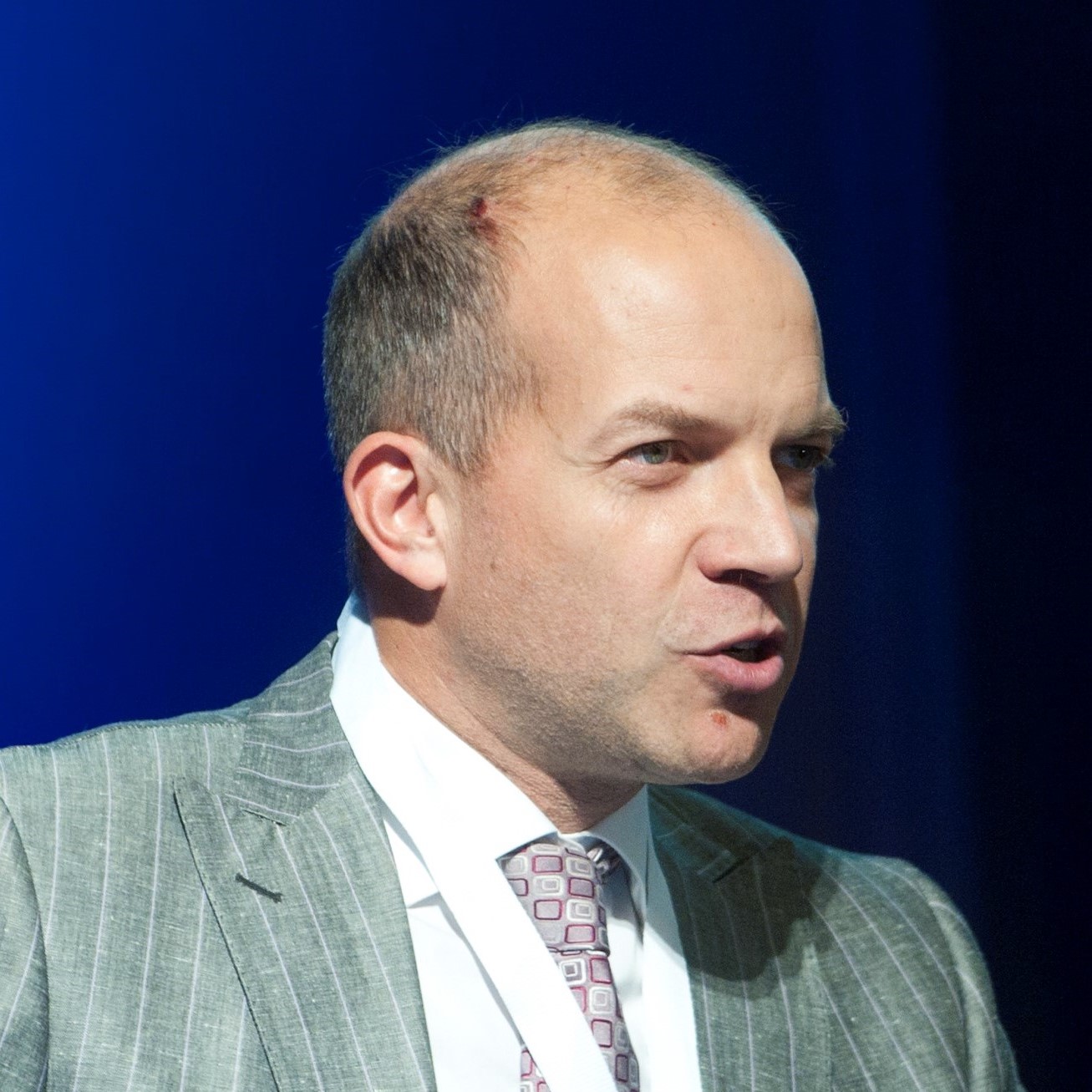
Csapodi Csaba Gergely
tudományos munkatárs
-
Kutatócsoport:MTA-ELKH-ELTE Matematikadidaktikai Kutatócsoport
-
Kutatási osztály:Szakmódszertan
-
Szoba:Szép u. 5.
-
Telefon:+36 1 483 8364
-
Email:csapodi.csaba (at) renyi.hu
Munkatársak:
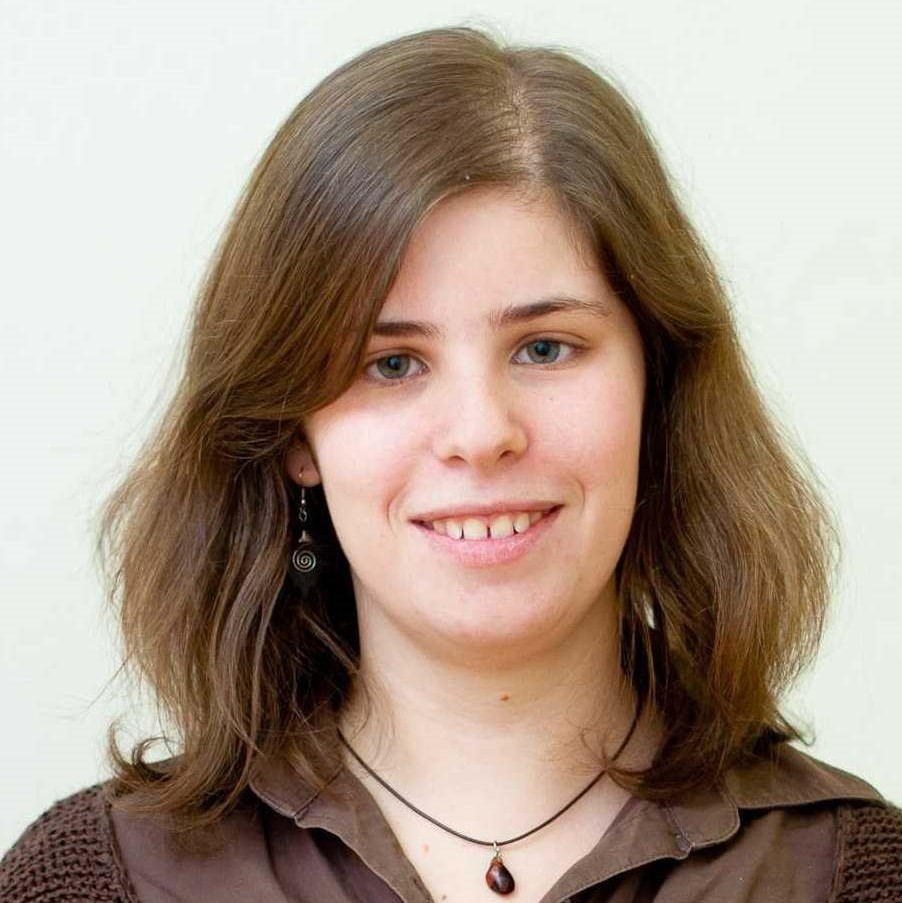
Gosztonyi Katalin
tudományos munkatárs
-
Kutatócsoport:MTA-ELKH-ELTE Matematikadidaktikai Kutatócsoport
-
Kutatási osztály:Szakmódszertan
-
Szoba:Szép5.
-
Telefon:+3614838364
-
Email:gosztonyi.katalin (at) renyi.hu

Juhász Péter
tudományos főmunkatárs
-
Kutatócsoport:MTA-ELKH-ELTE Matematikadidaktikai Kutatócsoport
-
Kutatási osztály:Szakmódszertan
-
Szoba:Szép5.
-
Telefon:+36 1 483 8364
-
Email:juhasz.peter (at) renyi.hu
Külsős munkatársak:
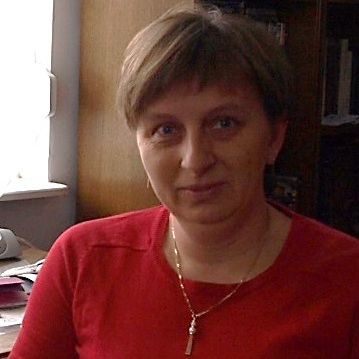
Herendiné Dr Kónya Eszter
tudományos főmunkatárs
-
Kutatócsoport:MTA-ELKH-ELTE Matematikadidaktikai Kutatócsoport
-
Kutatási osztály:-
-
Szoba:-
-
Telefon:-
-
Email:eszter.konya (at) science.unideb.hu
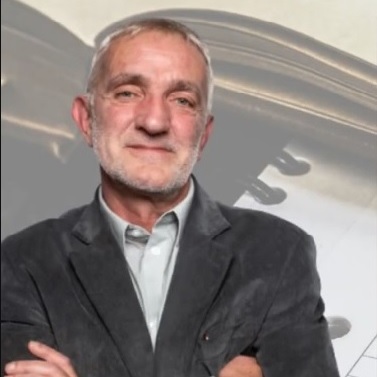
Kosztolányi József
tudományos tanácsadó
-
Kutatócsoport:MTA-ELKH-ELTE Matematikadidaktikai Kutatócsoport
-
Kutatási osztály:-
-
Szoba:-
-
Telefon:-
-
Email:kosztola (at) math.u-szeged.hu
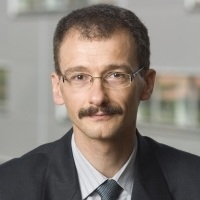
Kovács Zoltán
tudományos főmunkatárs
-
Kutatócsoport:MTA-ELKH-ELTE Matematikadidaktikai Kutatócsoport
-
Kutatási osztály:-
-
Szoba:-
-
Telefon:-
-
Email:kovacs.zoltan (at) uni-eszterhazy.hu

Vancsó Ödön
külsős munkatárs
-
Kutatócsoport:MTA-ELKH-ELTE Matematikadidaktikai Kutatócsoport
-
Kutatási osztály:Szakmódszertan
-
Szoba:Szép 5.
-
Telefon:-
-
Email:vancso.odon (at) renyi.hu
